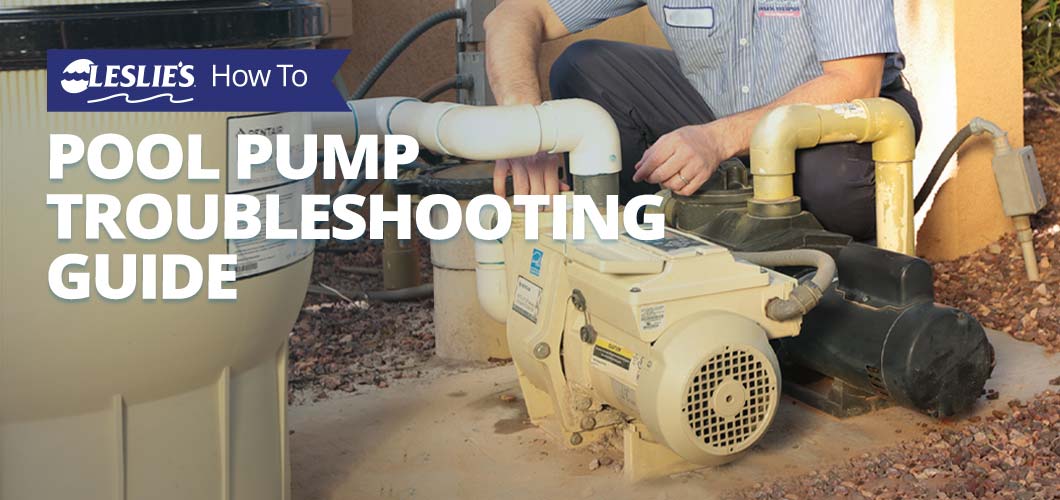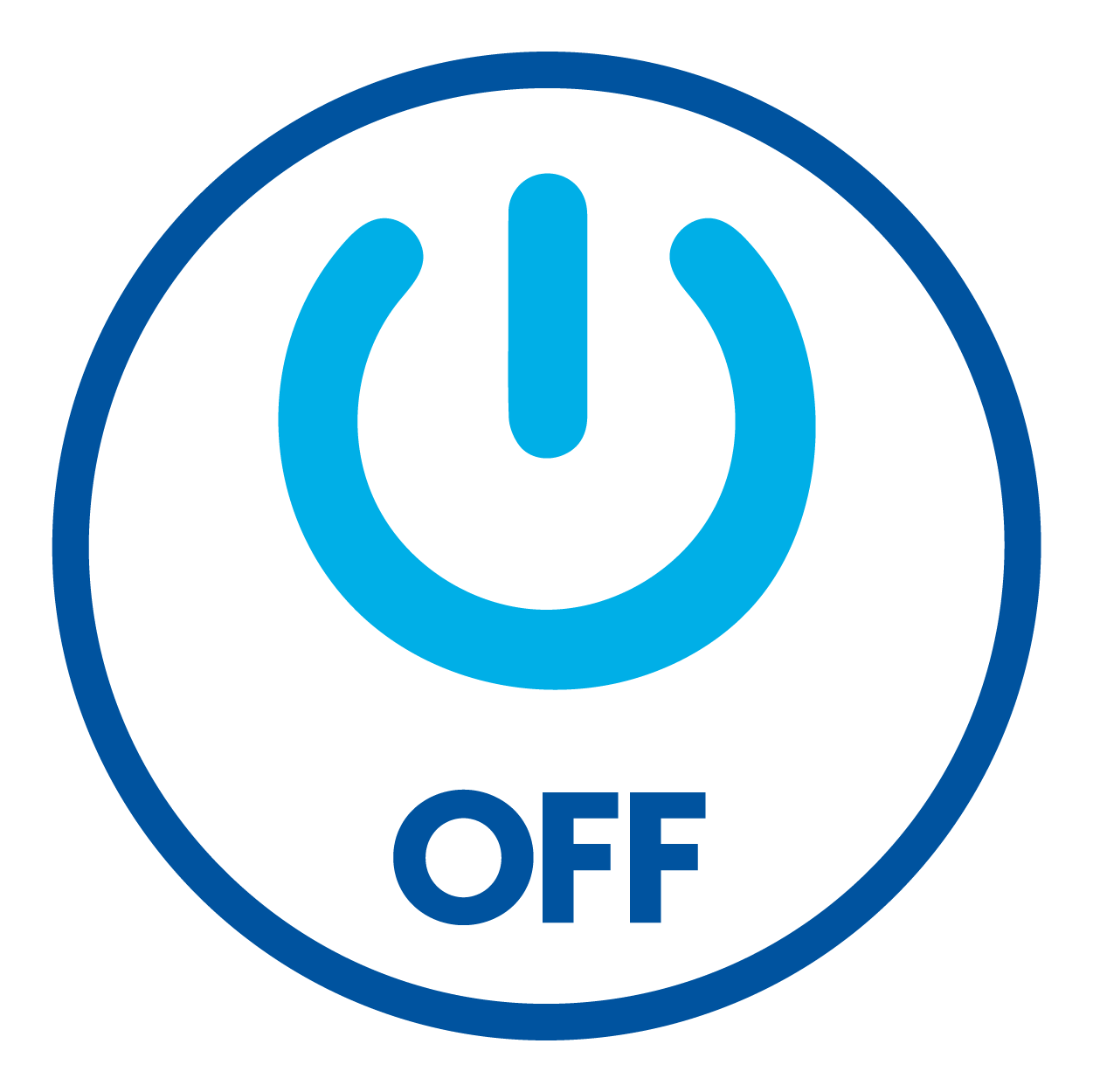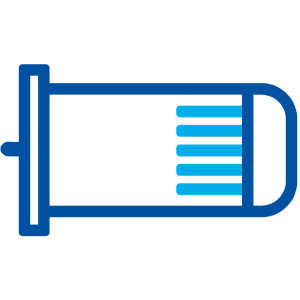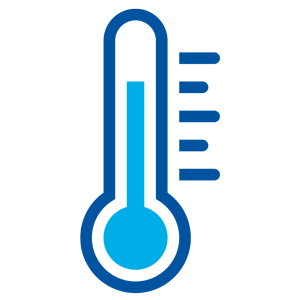
Pool Pump Troubleshooting Guide - Fixing Common Pump Issues
Pool pumps are the heart of every pool filtration system. This piece of equipment creates the suction and pressure to power water through the entire system. That being said, pool pumps sometimes require troubleshooting between routine maintenance checks. With the tips in this post, we're here to help you diagnose the problem, including the recommended fixes and pool pump parts to keep your pool's filtration system running strong.
9 Most Common Pool Pump Problems & Troubleshooting Tips
Pool pumps are the work horses of your pool equipment ensemble, and work long hours in the rain and shine. Therefore, it's no wonder why they sometimes need extra care and attention to continue performing at their best. If you notice your pool pump isn't delivering peak performance, don't stress quite yet. Simply work through the steps below to see if the problem is fixable.

Pump Motor Shuts Off or Will Not Start
Is the time clock on and running?
First, check the trippers. Next, is the time clock set correctly?
Is the circuit breaker on?
Check to see if the pump is getting power. Switch the circuit breaker off and then on. If in doubt about the availability of electrical current to the motor, contact a licensed electrician.
Can the pump operate as intended?
Check the overall operation — inspect the pump seal, ensure all wiring is connected, and unclog the impeller.
Pump Motor Hums, but Does Not Start
Is the impeller blocked?
If your pool pump will not start and you hear a humming noise, check your impeller for any debris. If debris starts to build, it can block the impeller and disable the pool pump. To check the impeller, turn the power off to the pump and remove the screws in the middle of the pump body. Once you remove the screws, pull the assembly out of the housing and remove the gasket away from the impeller. Remove any debris and re-assemble.
Is the capacitor shorted or opened?
If the pump is on and you are hearing a humming noise, it could be a bad capacitor. The capacitor is what starts the pump by giving it a jolt of electricity. No jolt, no start. You can replace the capacitor, but it's best done by a professional. The capacitor can still store power so be careful if replacing. Find the right one on our pump parts page. If your pump is old, consider replacing the motor instead.
Is the motor shaft bound up?
Turn the motor shaft by hand to get the “feel” of the motor. If the shaft feels tight, or doesn’t turn smoothly, it may be time to replace the pump motor.
Pump Motor Runs, then Shuts Off

Is the pump overheating?
If your pump turns on, but loses power, it could be overheating. Try running the pump at night to avoid overheating. Also check the bottom vents of the motor to make sure there is nothing inhibiting the fan. We have a few more troubleshooting tips for overheating pumps below.
Is the impeller turning freely?
It is vital for the impeller to turn freely. Inspect the impeller for proper clearance. Remove debris that could be clogging up the impeller.
Are there rocks or debris between the impeller and pump housing?
Inspect the impeller and pump housing for debris and rocks, and remove, if necessary.
Is the wiring or connection loose?
Check to verify that the wiring connections are secure.
Is there low voltage at the motor?
Ensure the correct size wiring is installed.
Pump or Motor is Noisy

Where's the noise coming from?
A screeching, rattling, or gargling noise can be frustrating for pool owners — and surrounding neighbors. If your pool pump sounds like it’s running with rocks inside the pump basket, it might be starved for water. First, check your suction lines to make sure they're not blocked or closed off. Next, check your skimmers and remove debris from the baskets. If your pool pump is causing a screeching noise, it could be caused by worn bearings. You can change the bearings out, but many pool owners opt to switch out the older motor for a new one.
Is it the motor?
Air leaks in the suction side can cause rumbling in the motor. Check for air leaks. Worn bearings will also make a screeching noise.
Is there a restriction or undersized suction line?
Cavitation is can result from improper suction line sizing, leaks in the piping, low pool water levels, or a blockage in the suction line. Inspect all situations.
Is there foreign matter in the pump housing?
Inspect the impeller and pump housing for debris and rocks. Remove foreign objects, if present.
Is there a howling or screeching sound?
Rotate the motor shaft and feel for rough spots or binding. Also, any play or wobbling in the shaft can indicate the armature has become worn. It may be time to replace the pump motor.
Did the vibrations begin once it was installed?
This would indicate the pump was not properly mounted to your equipment pad or filtration system. Submit a pool service request form for assistance.
Is there a leak in any connections?
Check for air leaks. Vibration typically implies improper mounting to the equipment pad. If using a variable speed pump, you should see the specific error messages on the digital display.
Pump Motor Overheats

Is the ambient temperature extremely high?
Artificially high ambient temperatures (air surrounding your pool pump) may be created if the motor operates in confined space and circulates the warmer air.
Is there proper ventilation?
Check the motor fan to verify that it’s not broken. Ensure the motor air vents are free of debris, and there's sufficient area around the motor to allow proper air flow.
Is the motor in direct sun?
Protect the motor from excess heat by shading from the sun with a pump cover.
Is the voltage correct?
Low or high voltage will cause overheating of your pool equipment. We recommend calling a licensed electrician for assistance.
Is the wiring the correct size?
Undersized, long power wires will cause overheating.
Pool Pump Will Not Prime
Is the skimmer basket full of debris?
Empty the pump strainer and skimmer baskets. Then, check for loose connections and air leaks.
Is there a pressure or suction leak?
Air in the suction side can cause a pump to lose prime. Likewise, a leak in the pressure side can cause a loss of prime whenever the system turns off. Check your pump lid first to ensure there's a tight seal, and replace the O-ring if necessary.
Are the water levels in the pool sufficient?
Water should be kept about halfway up the mouth of the skimmer to prevent the pump from sucking air into the system. If the skimmer weir gate gets stuck in the "up" position, this can also cause the pump to draw air.
You can find tips on how to prime a pool pump on our blog.
Pump Has Low Flow

Is the pool filter dirty?
Check your filter gauge first. If you are above 10psi over the clean reading specified by the manufacturer, you’ll want to clean the filter to reduce the pressure and reset the flow back to the pool pump.
Are there blockages in the plumbing lines or components?
Check your skimmer basket, pump strainer, and impeller for debris that could be blocking water flow. To remove the impeller, turn the power off to the pump and remove the screws in the middle of the pump body. Once you've removed the screws, pull the assembly out of the housing and remove the gasket away from the impeller. Remove any debris and re-assemble.
Is your pump sized correctly?
Lastly, check for the proper plumbing size. Plumbing that's too small for your pump won't allow for optimum flow rates. If this is a brand new pump having low flow issues, double-check to make sure you purchased the right size pump for your system.
Pool Pump is Leaking Water
Are the O-rings in good condition?
In most cases, a leak underneath a pool pump is caused by a pressure-side leak. Combat this by inspecting the impeller housing O-ring, shaft seal, and replacing any worn out or cracked O-rings or seals. Before taking apart your pool pump, we recommend purchasing an O-ring kit for your specific make and model. It is relatively inexpensive and will have all the necessary parts to replace your worn O-rings and seals. Keep your O-rings well lubricated for best results.
Pool Pump is Sucking in Air
Where is the air coming from?
To operate properly, pool pumps must be air tight. If there is a leak, the pool pump will suck in air and become problematic. The first thing you’ll want to check is the pump lid. If not on properly, the pump will suck in air and the pump will not be able to prime. If that does not solve the problem, you’ll want to check where the pipe enters the pump, the valve stem on any of the suction valves, the plumbing on the suction side of the pump (before the impeller), plus any O-rings and gaskets. Look for cracks, leaks, and loose or old fittings, and replace or repair if needed. If you still can’t find a leak, spray some shaving cream on to the areas listed above. An air leak will draw the shaving cream inward and leave a dimple.
A malfunctioning pool pump is an immediate cause for concern in order to keep your pool circulating and filtering. However, it often just needs a simple cleaning, minor repair, or a tune-up to kick it back into gear. Keep this helpful post handy in case you run into any pool pump problems again. For additional help, stop in to your local Leslie's and speak with one of our pool equipment experts, or fill out the online service contact form to schedule an appointment with one of our knowledgeable technicians. When all else fails, we can also help you choose a new pump that meets the needs of your pool system.